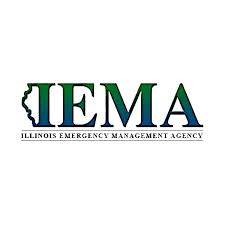SPRINGFIELD – As tax season draws to an end, a recent study places Illinois in ninth place on a list of states with the highest tax burden on residents.
In other news, the Governor has issued a disaster proclamation in response to Friday’s tornadoes for the counties affected.
Also, two abortion bills were passed by the Senate to the House of Representatives last week.
Illinois has ninth highest tax burden in nation

With tax season ending April 18, State Sen. Jil Tracy (R-Quincy) says it is time to take a closer look at what exactly that entails for the average Illinois resident.
A study released by the personal finance website WalletHub determined that Illinois has the ninth highest overall tax burden on its residents. To break it down, Illinois ranks tenth in the country for highest property tax and is in the top half of states for individual income and total sales and excise tax burdens.
This study is based around the idea of tax burdens rather than tax rates. Tax rates can vary wildly depending on a taxpayers’ different circumstances, but tax burdens will reflect the amount of an individual’s income that is paid in a variety of taxes. By looking at that percentage, it is easier to see the impact of taxes on the average person.
This study showed that when accounting for property, individual income, and sales and excise tax rates, Illinois residents lose 9.3 percent of their personal income to taxes. This division means almost one hour’s pay for every eight-hour work shift is being taken from Illinoisans when all taxes are accounted for.
This study also found a wide disparity between two groups of states. When averaged, Republican states have a significantly lower total tax burden than Democratic states. By averaging the rank of states with the highest tax burden, Republican states have a lower tax burden than the national average, while Democratic states have a higher tax burden.
Illinois’ high tax burden coupled with record-high inflation are the major reasons that Senate Republicans continue to push for relief for Illinois families. Last week, Republican Senators made another public push for their measures that would provide Illinoisans with savings on food, drugs, childcare, and energy costs.
Disaster declaration issued for severe weather damages

This past week has been filled with severe weather in Illinois: 22 tornadoes from Friday to Tuesday in addition to Wednesday’s thunderstorms, resulting in property damage and, tragically, lost lives. As a result, the Governor has issued a disaster proclamation following the storms to provide some relief for communities.
A disaster proclamation enables the state to provide immediate assistance to the communities outlined in the proclamation, in this case including Boone, Crawford, DuPage, Marion, and Sangamon counties. Additionally, the Governor has also directed the Illinois Emergency Management Agency to coordinate a statewide response.
On average, April is one of the months during which tornadoes occur more frequently in Illinois. Friday’s experience, however, is significantly outside the norm. Typically, Illinois experiences eight to nine tornadoes throughout the entire month of April.
Abortion bills passed by Senate ahead of deadline

Last week during the rush of meeting the deadline to pass bills out of the Senate, two abortion bills made their way out of the Senate and to the House of Representatives. Senate Bill 1909 and Senate Bill 1344 were both passed in a vote of 36 to 19. Sen. Tracy voted against both measures and says that the passage of these bills is further proof that Illinois’ priorities are backward.
Senate Bill 1909: Prohibits pregnancy resource centers from engaging in so-called “deceptive practices” and makes the centers civilly liable for engaging in such acts. Also allows for any “aggrieved party” to sue the centers for violations of this Act; however, an “aggrieved party” does not need to have been a client or patient of the center.
Senate Bill 1344: Exempts the Abortion Care Clinical Training Program from FOIA reporting requirements in an effort to protect the program from “targeting” and “harassment.”
As to Senate Bill 1909, current statute already provides the Attorney General with the ability to file cases against deceptive practices. Sen. Tracy says she is also concerned that the bill solely targets pregnancy resource centers, which are facilities that don’t actively promote abortion.
